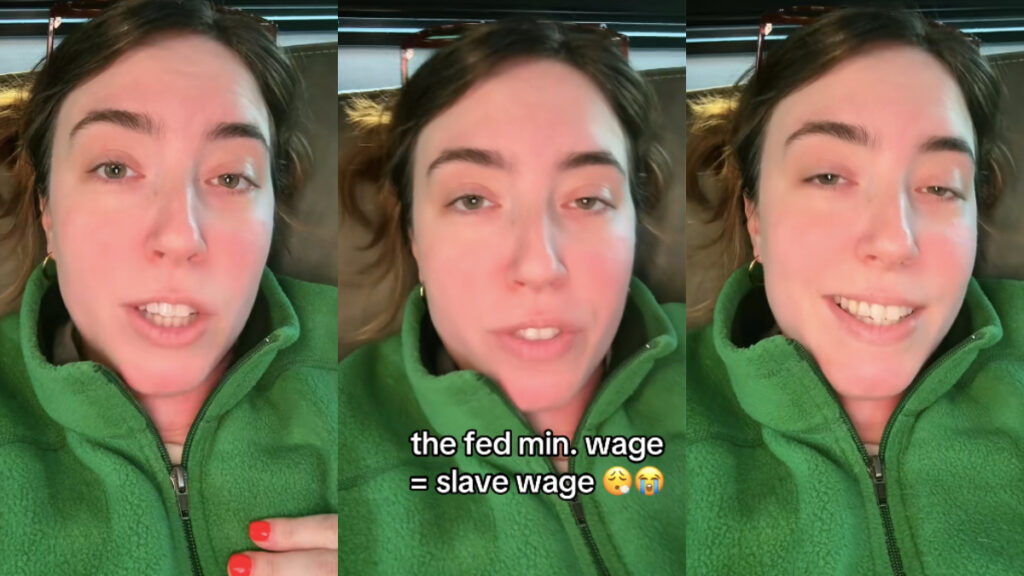In the United States, discussions surrounding what constitutes a reasonable living wage usually cause heated arguments. Many feel pay rates should be more dependent on higher education. Yet those who are working themselves to the bone, unable to pay for their most basic expenses, adamantly disagree. A TikTok creator in Saint Helens, Oregon recently weighed in, likening underpaid workers to society’s modern-day slaves.
The Oregon woman, who goes by Shell on Earth on TikTok, shared that the minimum federal wage in her state is between $15-$16 an hour, depending on location. She went on to say that she moved to Saint Helens from Louisiana, where the minimum wage wasn’t even $8. In fact, she claimed that it was only $7.25.
Shell referred to the low rate of pay as slave wages. She also said the numbers shocked several Oregon co-workers when she laid them out. Shell explained a lot of states still go by the federal minimum wage. She finds it inexcusable that rates of pay devalue workers in such a life-altering way:
Can you imagine making fifty dollars a day for your hard work, all day long… One bag of groceries costs your entire day’s work.
Shell acknowledged that for many, one bag of groceries might even cost double their slim daily wages. She can’t believe it’s legal in today’s economy, and said that it wasn’t acceptable even a decade ago.
For those who share the mindset that wages directly reflect someone’s skillsets and or education, Shell had a final message. She claimed they were missing the point, which is that every job in society is important, no matter the position. “No one should have to work making that little money,” she stressed from her Oregon home.
Oregon Creator Validates Income Consensus
For the most part, Shell’s viewers appeared to agree. Many chimed in from states other than Oregon, confirming the minimum wage where they live is barely over seven dollars. Meanwhile, rent in their area averages thousands of dollars a month.
One person commented, “All while these top 1 percent [of] individuals have more money than they know what to do with[.]”
Whether from Oregon or elsewhere, the fact remains that those considered lower class due to unfair compensation outrank those living with money to spare.







